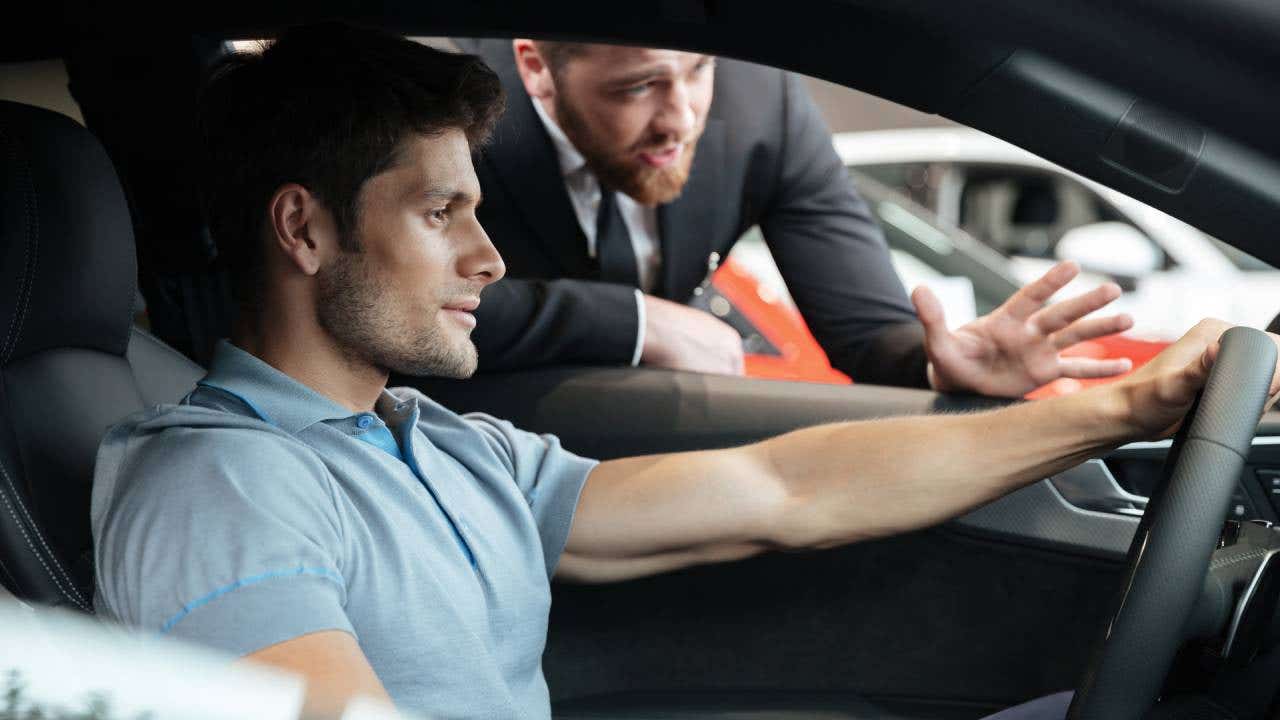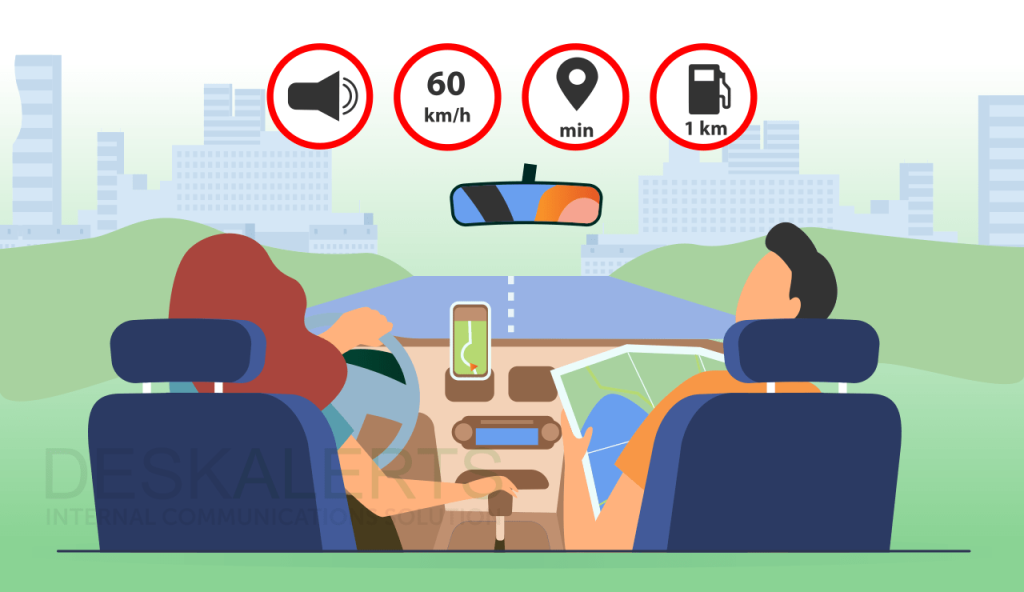You do not need a driver’s license to buy a car. You need one to drive it legally.
Buying a car without a driver’s license is possible and legal. Car dealerships primarily require proof of identity and payment. A valid driver’s license is essential for test driving and driving the car home. Insurance policies also generally require a licensed driver.
If you plan to register the car in your name, a driver’s license simplifies the process. Unlicensed buyers often face challenges with insurance and registration. Consider the implications before purchasing a vehicle without a license. You may need someone else to register and insure the car. Always check local laws and regulations to ensure compliance.

Credit: www.bankrate.com
Introduction To Car Purchasing Without A License
Many people wonder if they need a driver’s license to buy a car. The simple answer is no, you don’t. Buying a car without a license is possible and legal. This section will explain how you can do it.
Common Misconceptions
There are many myths about buying a car without a license. Some think it’s illegal or impossible. This is not true. You can purchase a car even if you cannot drive it.
People also believe you need a license to insure a car. This is another myth. You can get insurance without a driver’s license. However, it may be more challenging.
Legal Prerequisites
While a driver’s license is not required, other documents are needed. You will need a valid ID, such as a passport or state ID. You also need proof of income or financing. This shows you can pay for the car.
You might need to provide proof of residence. This can be a utility bill or lease agreement. These documents are crucial for completing the purchase.
| Document | Purpose |
|---|---|
| Valid ID | To verify your identity |
| Proof of Income | To show you can pay for the car |
| Proof of Residence | To confirm your address |
Here is a summary of the key points:
- You don’t need a driver’s license to buy a car.
- You can insure a car without a driver’s license.
- You need a valid ID, proof of income, and proof of residence.
Why Buy A Car Without A License?
Buying a car without a driver’s license might sound unusual. But there are several reasons why someone might do it. Whether for investment purposes or for someone else, there are valid reasons.
Investment Purposes
Some people purchase cars as an investment. Classic cars often increase in value. These cars are stored and maintained well. Owners wait for the right time to sell them at a profit.
Consider the following benefits of buying cars for investment:
- Cars can appreciate in value.
- Some models become rare and sought after.
- Well-maintained cars can fetch high prices.
Buying a car for investment does not require a license. The car is not for driving, but for future profit.
For Someone Else
Buying a car for someone else is another reason. Parents might buy a car for their children. Or, a person might buy a car for a family member or friend.
Here are some scenarios:
- Parents buying a car for their child who just got a license.
- Gifting a car to a spouse or partner.
- Providing a car for an elderly family member.
In these cases, the buyer does not need a driver’s license. The car is for someone else to drive.
| Purpose | Details |
|---|---|
| Investment | Buying classic cars for future profit. |
| For Someone Else | Buying a car for a family member or friend. |
Legal Aspects Of Buying A Car
Buying a car involves understanding several legal aspects. One crucial question is, “Do you need a driver’s license to buy a car?” This section explores the legal nuances of car ownership and state-specific regulations.
Ownership Vs. Driving Rights
Car ownership and driving rights are different. You can own a car without a driver’s license. Ownership means you have the legal title of the car.
Driving rights require a valid driver’s license. You need a license to operate the car on public roads.
| Aspect | Details |
|---|---|
| Car Ownership | Legal title of the vehicle, no license needed |
| Driving Rights | Requires a valid driver’s license |
State-specific Regulations
Each state has unique rules about buying and owning a car. Some states allow you to buy a car without a license. Others may have additional requirements.
- California: No license needed to buy, but required for registration.
- Texas: You can buy without a license, but need one to drive.
- New York: No license needed for purchase, required for insurance.
Understanding these rules helps you navigate the car-buying process. Check your state’s Department of Motor Vehicles (DMV) website for specific information.

Credit: www.wnct.com
Challenges In Purchasing Without A License
Buying a car without a driver’s license can be tough. There are several challenges that you might face during the process. Let’s explore some of these challenges in detail.
Insurance Complications
Car insurance is crucial when buying a car. Without a driver’s license, getting insurance can be a big problem. Most insurance companies require a valid license. This ensures that the driver knows the rules of the road.
Some insurers might offer coverage. But the premium rates are usually higher. This is because they see it as a higher risk. Below is a table showing the differences in insurance rates:
| Type of Policy | With License | Without License |
|---|---|---|
| Basic Coverage | $100/month | $150/month |
| Full Coverage | $200/month | $300/month |
Dealer Policies
Car dealers also have their own rules. Many dealers prefer to sell cars to licensed drivers. This is because it simplifies the process.
Some dealers might still sell you a car. But they might ask for extra documents. Here is a list of what they might need:
- Proof of identity (passport, state ID)
- Proof of residence (utility bill, lease agreement)
- Proof of income (pay stubs, bank statements)
These extra steps can be time-consuming. They might also increase the overall cost.
Financing Options
Buying a car is a big decision. It often involves various financing options. Whether you have a driver’s license or not can impact your choices. Here we explore the different financing options available for purchasing a vehicle.
Lender Requirements
Most lenders have specific requirements for car loans. Here are some common criteria:
- Proof of income
- Credit score
- Proof of residence
- Driver’s license
Some lenders may ask for a driver’s license as part of the verification process. This helps confirm your identity and age. Without a driver’s license, getting a loan may be challenging. But it is not impossible.
Alternative Financing Methods
There are alternative ways to finance a car without a driver’s license. These methods can offer more flexibility:
- Co-Signer: A trusted person can co-sign your loan. This person must have a valid driver’s license and good credit.
- Personal Loans: You can apply for a personal loan. These loans may not require a driver’s license but often have higher interest rates.
- Dealer Financing: Some dealerships offer in-house financing. They may have different requirements and could be more flexible.
Each of these options has its pros and cons. It’s important to research and choose what works best for you. Below is a table summarizing the options:
| Financing Method | Requirements |
|---|---|
| Co-Signer | Co-signer with driver’s license and good credit |
| Personal Loans | Proof of income, credit check |
| Dealer Financing | Varies by dealership |
Choosing the right financing option can make car buying easier. Always read the terms carefully before making a decision.

Credit: www.matthewscurrie.com
Insurance Considerations
Buying a car without a driver’s license can be tricky. One major aspect is insurance. Let’s explore the options available.
Non-owner Policies
If you don’t own a car but drive often, a non-owner policy might help. This type of policy covers you when you drive cars you don’t own. It is useful if you rent cars frequently or borrow cars from friends. It provides liability coverage, which includes bodily injury and property damage. However, it does not cover the car you are driving or its contents.
Insuring Without A License
Can you insure a car without a driver’s license? Yes, but it’s not easy. Insurance companies may view you as high risk. Some may refuse to insure you. Others might offer policies with higher premiums. Here are some steps to take:
- List someone else as the primary driver
- Provide a valid reason for owning the car
- Use a licensed driver to communicate with the insurance company
Listing another person as the primary driver is common. Make sure this person has a valid license and clean driving record. Explain why you need the car. Reasons might include buying the car for someone else or collecting cars as a hobby. Always use a licensed driver to talk to the insurance company. This makes the process smoother.
Registration And Titling
Buying a car is exciting. But what if you don’t have a driver’s license? Understanding the registration and titling process is crucial. These steps ensure your car is legally yours.
State Guidelines
Each state has its own rules. Some states are strict, others are flexible. Check your local Department of Motor Vehicles (DMV) for details.
| State | Guideline |
|---|---|
| California | Requires a valid ID |
| New York | Accepts alternate identification |
| Texas | Needs proof of insurance |
Without A License
You can still buy a car without a license. But, you need a valid ID. This can be a state ID or passport. The seller may also require proof of insurance.
- Ensure you have a valid ID
- Provide proof of insurance
- Check state-specific guidelines
Practical Tips For Unlicensed Buyers
Buying a car without a driver’s license can be challenging. But, with the right approach, it is possible. This section offers practical tips for unlicensed buyers. It covers everything from preparation to navigating the buying process.
Preparation Is Key
Before heading to the dealership, gather essential documents. These include:
- Proof of identity (passport or state ID)
- Proof of income (pay stubs or bank statements)
- Proof of residency (utility bill or lease agreement)
Have a licensed driver with you. This person will handle the test drive. They can also help with final paperwork.
Research cars online. Know the make, model, and features you want. This saves time at the dealership.
Navigating The Buying Process
Once at the dealership, be upfront about not having a license. Most dealers understand and can work with you.
Be prepared to pay in cash or secure financing. Without a license, getting a loan can be tough. Check with banks or credit unions for options.
Consider buying from a private seller. They might be more flexible about the license requirement.
Here’s a simple table to help you remember the steps:
| Step | Action |
|---|---|
| 1 | Gather essential documents |
| 2 | Bring a licensed driver |
| 3 | Research cars online |
| 4 | Be upfront at the dealership |
| 5 | Prepare to pay in cash or secure financing |
| 6 | Consider private sellers |
Following these steps can simplify the car buying process. Stay organized and patient. Your efforts will pay off.
Frequently Asked Questions
Do I Need A Local Driver’s License To Buy A Car?
No, you don’t need a local driver’s license to buy a car. However, you do need one to drive it.
Do I Need A Texas License To Buy A Car In Texas?
No, you don’t need a Texas license to buy a car in Texas. You can use an out-of-state license.
Can I Get A Car With An Id In Texas?
Yes, you can get a car in Texas with a valid ID. Ensure you have proof of insurance and residency.
Do You Need A Driver’s License To Register A Car In Texas?
Yes, you need a valid driver’s license or state ID to register a car in Texas.
Do You Need A License To Buy A Car?
No, you don’t need a driver’s license to buy a car.
Can You Register A Car Without A License?
No, registering a car typically requires a valid driver’s license.
Is A Driver’s License Required For Car Financing?
Yes, most lenders require a valid driver’s license for car financing.
Can Someone Else Register My Car For Me?
Yes, someone with a valid license can register your car.
Conclusion
Buying a car without a driver’s license is possible. However, you’ll face limitations and additional steps. It’s best to get a driver’s license first. This simplifies insurance and registration processes. Ensure you understand your local laws and requirements. Always consult experts for the best advice before making a purchase.



